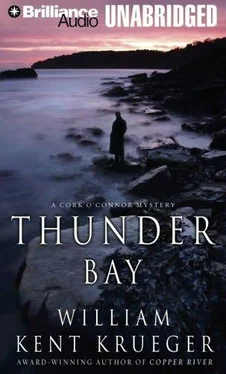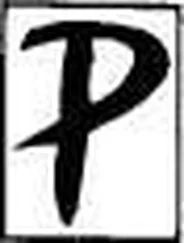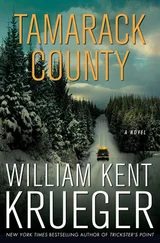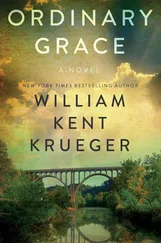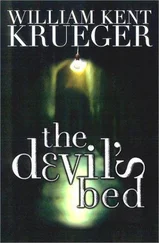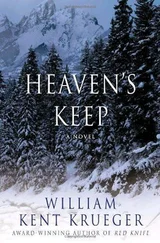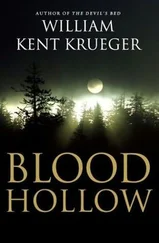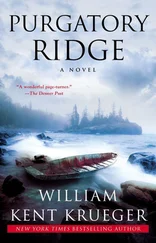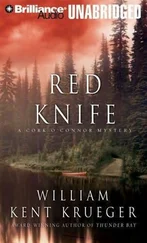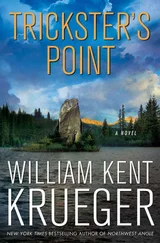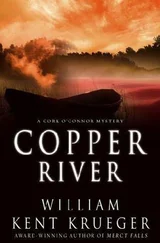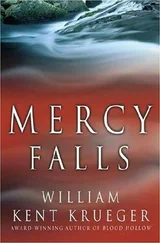William Krueger - Thunder Bay
Здесь есть возможность читать онлайн «William Krueger - Thunder Bay» весь текст электронной книги совершенно бесплатно (целиком полную версию без сокращений). В некоторых случаях можно слушать аудио, скачать через торрент в формате fb2 и присутствует краткое содержание. Жанр: Триллер, на английском языке. Описание произведения, (предисловие) а так же отзывы посетителей доступны на портале библиотеки ЛибКат.
- Название:Thunder Bay
- Автор:
- Жанр:
- Год:неизвестен
- ISBN:нет данных
- Рейтинг книги:4 / 5. Голосов: 1
-
Избранное:Добавить в избранное
- Отзывы:
-
Ваша оценка:
- 80
- 1
- 2
- 3
- 4
- 5
Thunder Bay: краткое содержание, описание и аннотация
Предлагаем к чтению аннотацию, описание, краткое содержание или предисловие (зависит от того, что написал сам автор книги «Thunder Bay»). Если вы не нашли необходимую информацию о книге — напишите в комментариях, мы постараемся отыскать её.
Thunder Bay — читать онлайн бесплатно полную книгу (весь текст) целиком
Ниже представлен текст книги, разбитый по страницам. Система сохранения места последней прочитанной страницы, позволяет с удобством читать онлайн бесплатно книгу «Thunder Bay», без необходимости каждый раз заново искать на чём Вы остановились. Поставьте закладку, и сможете в любой момент перейти на страницу, на которой закончили чтение.
Интервал:
Закладка:
That night, lying beside his uncle after the men slept, Henry asked, “Did they find the gold?”
Woodrow said, “Not the gold, I think. They would be drunk. But something that makes them believe they might find gold.”
Soon after dawn the next day, the men left. This time Woodrow followed.
Henry fished and caught several walleye that would easily fill all their bellies that evening. He cleaned his rifle and waited, scanning the lake with uneasiness in the direction all the men had gone.
The two whites came first. Their boots and the legs of their pants were caked with mud. Woodrow was not with them.
“Where’s your uncle?” the man named Wellington asked. He didn’t seem as excited as he’d been the day before, but neither was he surly. Henry wasn’t sure what that meant.
Henry didn’t want to speak to them. He answered, “I do not know.”
“I hope you have a meal ready, boy,” the man named Lima said. “A big meal.” With his accent the word came out beeg. “I could eat a moose.”
Henry fed them the walleye, which he rolled in cornmeal and fried. He made drop biscuits and gave them blueberries he’d gathered and the men were happy.
Dark came, but not Woodrow.
“Should we worry, boy?” Lima asked. Then he grinned. A joke.
Henry remembered what his uncle had said about leaving people who treated him badly. These men were not so bad as many other whites, but maybe they’d said something to Woodrow.
The men sat at the fire. They’d put their pants near the flames to dry the mud. They drank coffee Henry had made and into which they poured some of whatever was in the silver flask. Their faces were flushed. The color was from spending the day under the sun and maybe from the work they did while they were gone across the lake, and from the paddling necessary to get there and back, and even a little from the heat of the fire. But it was also from what they drank.
Wellington wrote in a book bound in leather. Every night they’d camped, he’d spent time after supper writing by the firelight. He looked up from his book and caught Henry staring.
“Writing my memoirs,” Wellington said with a laugh. “I figure I’ll publish them someday, get famous.”
“You read, boy?” Lima asked.
Henry was tired of being called boy, but he held his tongue. He stirred the fire with a long, sturdy maple stick. “I read,” he said.
“Mission school or something?” Wellington asked.
“A school in South Dakota.”
“South Dakota?” Wellington laughed. “A world traveler, eh? Ever been to Canada?”
“No,” Henry said.
“I’m from Port Arthur. Know where that is?”
“No,” Henry said.
“You’re not alone.” Wellington gave a snort. “Me, I’m going to put that burg on the map, eh.”
Lima pulled a cigar from the vest pocket of his jacket. “You smoke, boy?”
“No,” Henry said.
Lima ran the cigar along the line of his mustache under his nose and inhaled deeply. “These are my own cigars. It’s what I do. Manufacture good smokes. You know the island Cuba?”
He’d heard of it, but had no clear idea of its location in relation to anything he knew.
“The best cigars, they come from Cuba, from my factory. Have one, boy. On me.”
Lima held it out, long and brown like the dropping of a big animal. Henry didn’t want the cigar, but he didn’t want to offend the man. He took it.
Lima pulled out a cigar for himself. “Now, you clip the tip like this.” He pulled out his knife and deftly sliced off a small nub at the end of the cigar.
Henry took his own knife and did the same. He was aware that Wellington watched him with gleaming eyes.
Lima struck a match on one of the rocks Henry had used to ring the fire. “Before you light your cigar, make sure the sulfur is burned out of the match head, okay? Sulfur can kill the taste of a good cigar. Don’t put the cigar in your mouth yet. Hold it in your hand and rotate it near the flame, like this.” He rolled the cigar between his index finger and thumb, near the match flame, until the entire tip on all sides glowed with ember. “Now you put it in your mouth and take a gentle puff or two to blow out the taste of anything not tobacco that may have come from lighting it. Only then are you ready to enjoy the pleasure of this truly fine product.” He looked at Henry expectantly. “Well, go on, boy.”
Henry imitated Lima’s actions and soon the cigar smoke crawled down his throat like a thick snake.
“Good, good,” Lima said with a big grin. “Enjoy.”
Henry didn’t. He got sick. After he’d puffed for a while, he became dizzy and had to lie down. The men guffawed. A little later, he stood up, stumbled out of the firelight, and puked. The men roared with laughter.
“Don’t worry, boy,” Lima called. “We’ll make a man of you yet.”
Later, as Henry lay in his bedroll, he thought to himself that if his uncle didn’t kill these men, he would do it himself.
He woke to the rustle of the tent flap. Woodrow entered and lay down on his bedroll.
“You fed them?” he asked.
“Yes,” Henry answered.
He wanted to ask where his uncle had been, but he knew if Woodrow meant for him to know, he would say. In a few minutes, he could hear the soft susurrus of deep breathing that told him Woodrow had gone to sleep.
Next morning he watched his uncle leave to follow the two white men again. Henry stayed back, dealt with the aftermath of breakfast, then took his rifle and a handful of cartridges and began to circle the lake on foot. Although he told himself he was going hunting, he didn’t look for signs of game. An hour later he came to the place along the far shoreline where the white men had drawn up their canoe. He didn’t see any sign of his uncle’s canoe, but he hadn’t expected to. Woodrow would have hidden it.
Henry easily found a trail broken through the undergrowth. It led toward the base of the ridge that ran the length of the lake and beyond. Henry paused, listened carefully, but heard nothing except the complaining of jays in the branches of a nearby poplar. He was curious about the men. He felt on the outside of whatever it was his uncle was thinking. He wondered at Woodrow’s silence, wondered if his uncle was merely watching or actively stalking. Truthfully, if Woodrow intended to kill the men to keep any gold they found a secret, Henry believed he should be a part of that. It wasn’t something he anticipated with pleasure, but it felt to him like a responsibility he should shoulder. Though Woodrow had not asked for his help, Henry believed it was the kind of thing a man-a true-blood Ojibwe- should be prepared to do.
The ridge was steep gray rock two hundred feet high. The top was capped with a mix of lithe aspen and sturdy spruce that shivered in a wind Henry couldn’t feel. The trail followed the base and was easy to read despite the rocky ground. From the far side of the lake, the ridge had looked solid. After half a mile, however, Henry came to a place where a second ridge folded against the first with a narrow break between them through which a tiny creek ran. The trail left by the men led beside the creek, and Henry followed.
On the other side of the ridges, he found a great expanse of marsh and understood immediately the mud that had caked the men’s boots and pants. He lost the trail in the soup of black water and yellow marsh grass. He climbed the ridge to high ground and scanned the tamarack trees that grew in profusion along the edges of the wetland. He saw no sign of the men or Woodrow.
It was midmorning. The sun had climbed halfway to its zenith. The day was turning hot. Henry found a place in the shade of a cedar and waited. Although he’d seen no evidence of Woodrow during his tracking, he was certain his uncle wasn’t far behind the white men. He wasn’t sure what waiting might accomplish, but he knew that the men would have to come back this way eventually-unless Woodrow did something to stop them.
Читать дальшеИнтервал:
Закладка:
Похожие книги на «Thunder Bay»
Представляем Вашему вниманию похожие книги на «Thunder Bay» списком для выбора. Мы отобрали схожую по названию и смыслу литературу в надежде предоставить читателям больше вариантов отыскать новые, интересные, ещё непрочитанные произведения.
Обсуждение, отзывы о книге «Thunder Bay» и просто собственные мнения читателей. Оставьте ваши комментарии, напишите, что Вы думаете о произведении, его смысле или главных героях. Укажите что конкретно понравилось, а что нет, и почему Вы так считаете.
